- News
- Reviews
- Bikes
- Components
- Bar tape & grips
- Bottom brackets
- Brake & gear cables
- Brake & STI levers
- Brake pads & spares
- Brakes
- Cassettes & freewheels
- Chains
- Chainsets & chainrings
- Derailleurs - front
- Derailleurs - rear
- Forks
- Gear levers & shifters
- Groupsets
- Handlebars & extensions
- Headsets
- Hubs
- Inner tubes
- Pedals
- Quick releases & skewers
- Saddles
- Seatposts
- Stems
- Wheels
- Tyres
- Tubeless valves
- Accessories
- Accessories - misc
- Computer mounts
- Bags
- Bar ends
- Bike bags & cases
- Bottle cages
- Bottles
- Cameras
- Car racks
- Child seats
- Computers
- Glasses
- GPS units
- Helmets
- Lights - front
- Lights - rear
- Lights - sets
- Locks
- Mirrors
- Mudguards
- Racks
- Pumps & CO2 inflators
- Puncture kits
- Reflectives
- Smart watches
- Stands and racks
- Trailers
- Clothing
- Health, fitness and nutrition
- Tools and workshop
- Miscellaneous
- Buyers Guides
- Features
- Forum
- Recommends
- Podcast
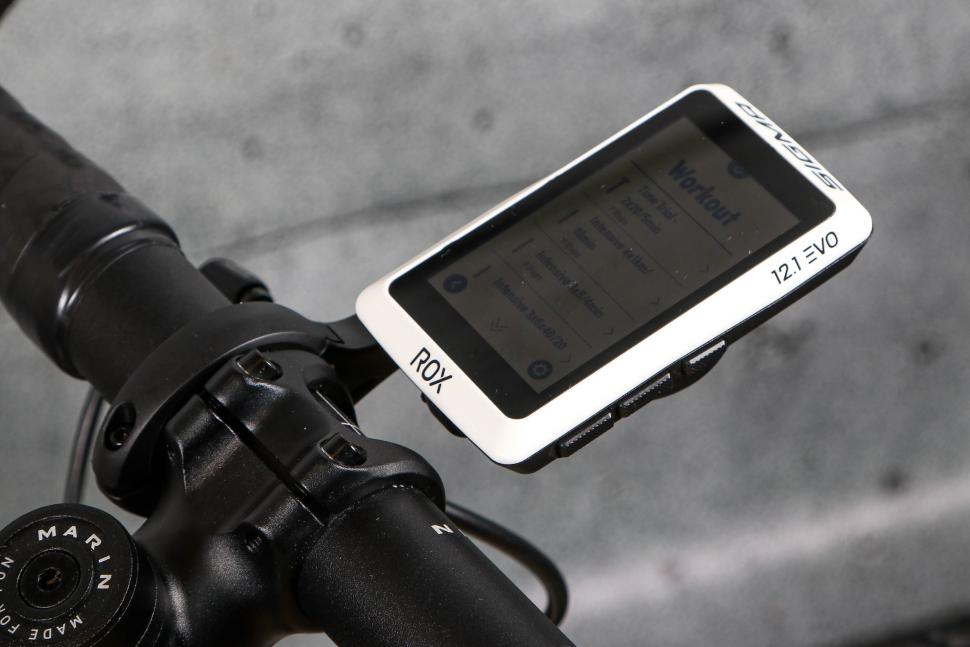 Sigma Rox 12.1 Evo
Sigma Rox 12.1 Evo£379.99
VERDICT:
Delivers excellent mapping and navigation experience with a host of training options that promise to sharpen your riding
Great mapping and navigation
Plan routes on the fly
Gets GPS signal quickly
Handy accompanying app
Some features hard to find
Doesn't sync with Ride with GPS
Handlebar mount issues
Touchscreen erratic
Weight:
109g
Contact:
At road.cc every product is thoroughly tested for as long as it takes to get a proper insight into how well it works. Our reviewers are experienced cyclists that we trust to be objective. While we strive to ensure that opinions expressed are backed up by facts, reviews are by their nature an informed opinion, not a definitive verdict. We don't intentionally try to break anything (except locks) but we do try to look for weak points in any design. The overall score is not just an average of the other scores: it reflects both a product's function and value – with value determined by how a product compares with items of similar spec, quality, and price.
What the road.cc scores meanGood scores are more common than bad, because fortunately good products are more common than bad.
- Exceptional
- Excellent
- Very Good
- Good
- Quite good
- Average
- Not so good
- Poor
- Bad
- Appalling
The Sigma Rox 12.1 Evo delivers super-clear colour mapping, boasts lightning-fast GPS acquisition, and comes with a host of route planning options, including the ability to key in a location and navigate there directly using the computer's built-in mapping.
Interested in the Sigma Rox 12.1 Evo? Read our guide to the best cycling computers for more options.
> Buy now: Sigma Rox 12.1 Evo for £321.99 from BikeInn
The Rox 12.1 Evo is a significant upgrade on the well-regarded Rox 12.0 Sport: it's more compact but retains a gloriously clear three-inch screen, with navigation buttons moved from the front of the device to the side.
It now features Bluetooth connectivity that will link to a range of devices, including heart rate monitors, power meters, Di2 shifting and even e-bikes. (You can buy the computer with speed and cadence sensors and heart rate monitor for £469.99.)
And there's a Crash Detection feature that can send an alert and your location to a chosen emergency contact. (If you trigger it by mistake, you have time to cancel the alert.)
You can customise six pre-installed ride profiles for Road, Mountain Bike, Gravel, E-Bike and Indoor Cycling. That means you can have different data and training views, depending on which of your fleet of bikes you decide to take out for the day.
And to maximise your performance, you'll find a host of ready-to-go ride workouts and the ability to load Strava Live Segments. It can even give you prompts to eat and drink as you ride. It's like having a tiny personal trainer sitting on your handlebar.
It is a seriously well-featured device. So how well does it do the basics of navigating from A to B?
First ride out
Fresh out of the box, this is a strikingly beautiful computer that feels light and sits neatly in the palm of your hand.
Switch it on and it's easy to set up and connect to your phone via the Sigma Ride App. You'll need this to upload routes and then share your rides on Strava.
But the Sigma Rox 12.1 Evo can generate routes independently, and I wanted to try this feature first.
I was due a trip to the bank. So I keyed the location in and it swiftly offered three possible routes on its pre-installed country maps – Suggested, Easiest and Shortest. I opted for 'Easiest' (it had been a tough week) and headed out the door.
As I rode, I was treated to a large, colourful map with turn-by-turn navigation that sat out in front of my handlebar on the 'Long Butler' mount. A circle on the route indicates any turn up ahead, and as you approach, the map zooms in, a pop-up turn direction appears and an alert sounds to make sure you stay on track.
There's 'Time of Arrival' and 'Distance to Destination' data under the map that all adds to the SatNav experience.
The touchscreen allows you to navigate through options, type in destinations and zoom in and out of mapping, but this way of accessing different features feels functional rather than smartphone-smooth. And as I spent more time with the computer, I found that rain and other mysterious forces could trigger the screen, which was not ideal.
The side buttons are well placed and easy to operate. These will take you to different training views to see your trip data on three screens that can be customised to show exactly the information you want.
You can save 'Favourite' locations for quick navigation. I used this to get me home a number of times, but I wasn't always impressed with the route it suggested. I often found myself on busy main roads when there were perfectly good bike paths and quieter B-roads on offer.
Hidden under 'Sport Profile' you will find the ability to adjust your preference for Major, Unpaved and Cycle Roads on three slider scales. Within this custom setting you can also add training alerts and change the distance on automatic laps, or switch this feature off.
These are surprisingly well-hidden features that took me a long time to find. Better signposting would be good to see.
The onboard navigation function also allows you to hand-draw a rough route on the screen, and the computer will generate a track for you. I certainly wouldn't trust this to deliver a pleasant 100k in the saddle, but being able to navigate to a specific location on the fly is really handy when you need a spontaneous change to your plans.
Loading planned rides
I'm used to planning on Ride with GPS, and was disappointed to discover that I couldn't load directly from that site. Sigma offers two options: either to upload a GPX file to the app or synch with routes that you plan on Komoot.
But while the Sigma Ride app was happy to share my routes on Strava, it took days for it to register routes that I'd planned on Komoot. It was only after an email to Sigma's (very helpful) customer services team that this situation mysteriously resolved itself.
> GPS cycle route planning made easy – how to plan and follow a bike route
So, I was finally ready to load up a 200km route along the River Wye and back down the Severn.
But as I moved the excellent handlebar mount from my fixie to my road bike, I encountered another problem: it was almost but not quite tight enough to hold the computer in position. So I gave the screw one extra turn. And in doing so it sheared off, leaving half the screw in the hole and the mount unusable.
A replacement 'Long Butler' mount will cost you €21.95 (a new screw considerably less). I might well have been at fault here, but I've not come across that issue on any similar device. If you're using this mount, don't overtighten and fall into the same trap.
Thankfully the Sigma Rox 12.1 Evo also comes with an alternative mount that can attach to the stem with the aid of a couple of zip-ties. Problem solved, and we set off.
For the first half of the day it performed brilliantly. I was running mapping and tracking my ride. The automatic backlighting and transflective screen made sure the route was clear no matter what the light conditions.
I really loved the way it zoomed in automatically when I needed to make a turn. And when I did deviate from the route, I first got an alert and then it quickly offered an alternative way to get back on track. This is a brilliant feature that could have saved me on numerous rides in the past.
I used my battery pack to keep it topped up in the last quarter of the ride, but I was impressed with just how well the charge lasted on a long day out. The constant zooming in, audio alerts and redrawing of maps are clearly power-hungry features.
Sigma reckons you can squeeze up to 22 hours of battery life out of this device, but you should expect closer to 12-14 hours with both maps and tracking running.
Vanishing map
And then at 130km, after a coffee and cake stop, the map vanished. I have no idea why. I hadn't changed any of the settings or messed with anything on the app. No matter how many times I tried to reload the route, I couldn't resolve the problem.
So for the last 70km, I had to ride with just prompts on the screen to tell me when to turn but no visual route to follow. Thankfully, I was riding with friends and could follow them home while the Sigma continued to track my activity.
I'm not sure what happened here but when I checked screen view customisation on the app that evening, it was quickly resolved. The map was back and the problem hasn't occurred since.
I don't think this was user error on my part and it did knock my confidence in this device a little. It added to a sense that the Rox 12.1 Evo would benefit from a simpler user experience.
It has taken me a while to work out what tools were available on the app and what was accessible on the device itself. That's not helped by the fact that some of these features only become visible on the app when you have the computer on.
A lot of the things I was looking for turned out to be tucked away in the Sports Profile feature. I'm not sure I'd want to be hunting around for any of these in the middle of the night, when I'm a few hundred km into a ride and my brain has stopped working.
Fast as a whip
Despite a few teething problems, this is an impressively powerful device. It operates on GNSS, which means it has access to a much wider array of international satellites than the standard (mostly American) GPS system. Switch it on, and with a clear view of the sky it seems to acquire a signal almost instantly.
And this signal operates well even under heavy tree cover. There is nothing more depressing than a chirpy computer alert telling you that you have stopped cycling when you are actually grinding up a relentlessly steep slope.
Its ability to find a location and generate a selection of route options is really impressive. And out on the road with the maps running, this is quite simply the best bike navigation experience I have had. Clear colour mapping, great size screen and a brilliant alerts system make this the perfect ride companion.
It can deliver a blistering array of data, too. This becomes especially important if you are going to pair it with other sensors.
My trusty and much loved Wahoo Bolt has just died after six years and thousands of kilometres of brilliant service, which meant I would be using the Sigma on this year's Paris-Brest-Paris.
I ended up taking an array of battery packs and a USB charger that links to my dynamo to keep it running over the 90 hours of that 1,200km event. This is an incredibly well-signposted route, so I took advantage of its lower power mode that simply tracks your route to squeeze out the final 100km of battery life.
There were some minor frustrations that were magnified through my exhaustion. The pop-up direction alert vanished for no discernible reason. The screen kept asking me if I wanted to ‘Change Data Fields’ and I kept setting off the Crash Detection feature and having to cancel it. That might seem like small fry, but when you’re trying to haul your exhausted backside to the top of another hill, it does become irritating.
And here comes my final and rather minor niggle. The Sigma Rox requires a USB-C power cable, and the one supplied is around 20cm long. That's not quite enough to stretch from the power pack in my bar bag to the Sigma while it's on the stem mount. I'd welcome a longer lead option without having to buy one on Amazon.
Value for money
At £379.99 this isn't a bargain option. An obvious rival in terms of screen size and functionality is the Garmin Edge Explore 2, and at £249.99 it's significantly cheaper. It also has route planning built in, but it doesn't have Wi-Fi connectivity or features like Strava live segments. However, if you just want good navigation then it's certainly worth a look; Stu reviewed one last year and thought it was very good.
The Hammerhead Karoo 2 is closer in price – £359 – and has a similar sized colour touchscreen and on-the-fly navigation. It scored 9/10 on our test in 2021, but it is slightly heavier and our reviewer Anna was worried about the lack of charging port cover.
Or there is the Wahoo Elemnt Bolt that Mat reviewed in 2021, which comes with a colour screen that is slightly larger than previous models (2.2in measured corner to corner). If you are used to Wahoo products, you may appreciate its simplicity. At £249.99, it is significantly pricier than the previous models, but you now get clearer colour mapping and features like automatic re-routing.
Conclusion
Though I had some teething problems with the Rox 12.1 Evo, I've really come to like it. It is an excellent bike computer and Sigma likes to tout its 'Made in Germany' credentials. The mapping and bike navigation are first-class. It is fast and feature packed, and would be a good option for any rider.
Verdict
Delivers excellent mapping and navigation experience with a host of training options that promise to sharpen your riding
road.cc test report
Make and model: Sigma Rox 12.1 Evo
Size tested: 57 x 95 x 21mm
Tell us what the product is for and who it's aimed at. What do the manufacturers say about it? How does that compare to your own feelings about it?
Feature-packed computer that has something for any bike user from road, to gravel to e-bikes and indoor trainers.
Sigma says: "The ROX 12.1 EVO with its innovative map navigation shows everyone the right way, whether MTB, road, gravel, touring or e-bike rider. Thanks to the pre-installed bike-specific OSM maps and the versatile routing options as well as the turnby-turn directions, everyone reaches their destination safely. If cyclists spontaneously deviate from the suggested route, the intelligent re-routing of the ROX 12.1 EVO plans a new route to the destination in a flash - including recalculation of the distance to the destination, the estimated time of arrival and the route plan, the distance to the destination, the estimated time of arrival and the altitude profile.
"With the six predefined and 22 additional sport profiles, the the ROX 12.1 EVO is ready for any cycling adventure. Within the individual sport profiles, the training views, route preferences and alarms that can be customised directly on the ROX 12.1 EVO or in the SIGMA RIDE app are set. The SIGMA RIDE app can also be used to import Strava Live segments into the ROX 12.1 EVO and the user will then see them on the display. For optimal energy supply during competition and and training, the ROX 12.1 EVO reminds the user to food or drink whenever you want."
Tell us some more about the technical aspects of the product?
It comes with Bluetooth connectivity, excellent mapping and a host of sports profiles that you can customise for different bikes.
Sigma lists these key features:
* User-friendly, easy-to-read user interface
* 110-gram GPS bike computer
* 6 predefined and 22 additional sport profiles
* Pre-installed country maps using a SIGMA-only proprietary map display ensures that you can find your way around
* More maps and regular updates can be downloaded via WiFi free of charge
* Connect to the SIGMA RIDE app on your smart phone with Bluetooth
* Analyze your ride with the SIGMA RIDE app
* ROX can also be connected to even more sensors (such as speed, cadence, or indoor trainers) with ANT+ and Bluetooth (sold separately)
* Crash Alert will detect if you have a serious accident and alert your emergency contacts
* Typical battery life of 14 Hours
* Connectivity: ANT+, BLE, WiFi
* E-bike compatible (incl. display of battery status, support level, range, etc.)
* Smart notifications inform you about incoming calls and messages while riding
Find more features/functions here.
Rate the product for quality of construction:
9/10
Light, robust and with good waterproof rating.
Rate the product for performance:
7/10
I experienced a few issues with synching on Komoot and finding some of the features tucked away within the Sports Profile feature.
Rate the product for durability:
9/10
The charge port is covered and tucked away underneath, and with a waterproof rating of IP67 it is protected against dust and sand, and should be able to work for at least 30 minutes while under 1m of water.
Rate the product for weight (if applicable)
9/10
Compares well with similarly featured devices.
Rate the product for value:
6/10
There are cheaper devices out there that also offer colour mapping, with a similar screen size, but excellent navigation alerts and training features make this worth checking out, especially if you value the ability to set up multiple sports profiles for different bike adventure.
Tell us how the product performed overall when used for its designed purpose
Mapping is excellent, but Sigma's 'user-friendly' layout isn't as easy to use as I'd hoped.
Tell us what you particularly liked about the product
Clarity of mapping, and the alerts are really excellent. The ability to customise training data screens became increasingly useful the more I used the device.
Tell us what you particularly disliked about the product
I did struggle with getting Komoot linked to the app, and then with the mysterious vanishing map on one trip out. It took me a while to find all the different controls on the app and the device itself.
How does the price compare to that of similar products in the market, including ones recently tested on road.cc?
This is more expensive than many computers that offer colour mapping and similarly sized screens, but it is feature packed.
Did you enjoy using the product? Yes
Would you consider buying the product? Yes
Would you recommend the product to a friend? I'd recommend it to anyone who would value the different sports profiles and training features that make this stand out from other computers.
Use this box to explain your overall score
It's very good: powerful and smart, with excellent mapping and navigation, plus a host of training options that promise to sharpen your riding, with just a few technical quirks that hold it back from a 9.
About the tester
Age: 0
I usually ride: Specialised Langster (fixed commuter) My best bike is: Condor Fratello (new – Audax rides)
I've been riding for: Over 20 years I ride: Most days I would class myself as: Experienced
I regularly do the following types of riding: commuting, touring, club rides, general fitness riding, fixed/singlespeed, Audax
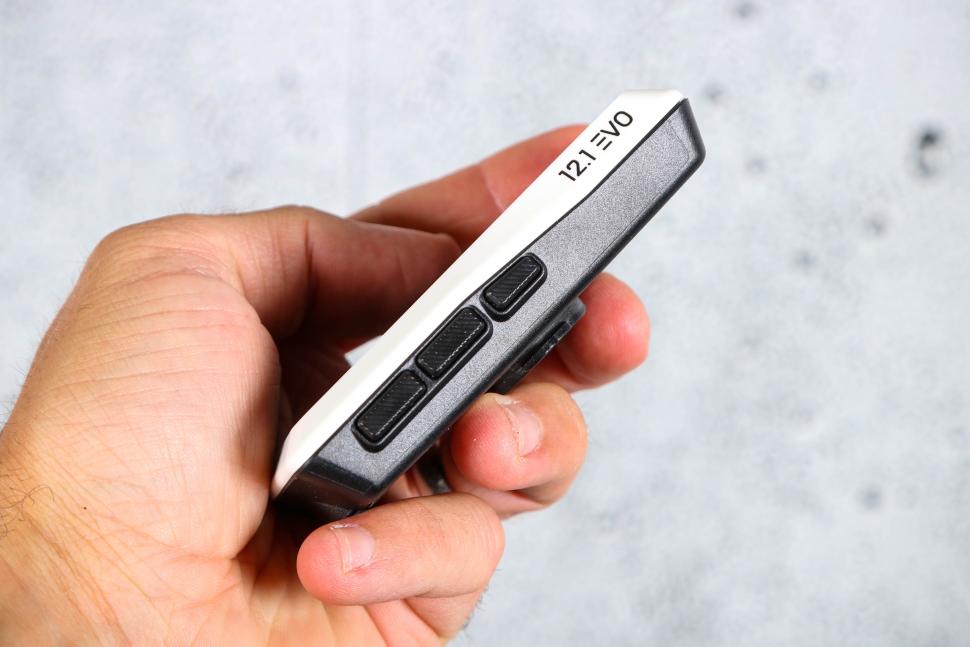
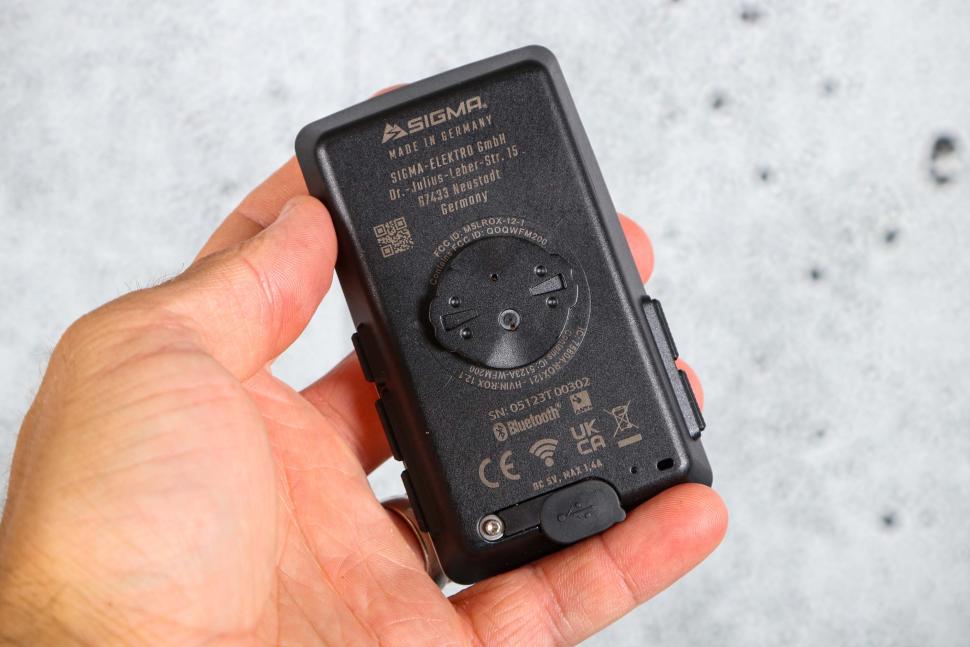
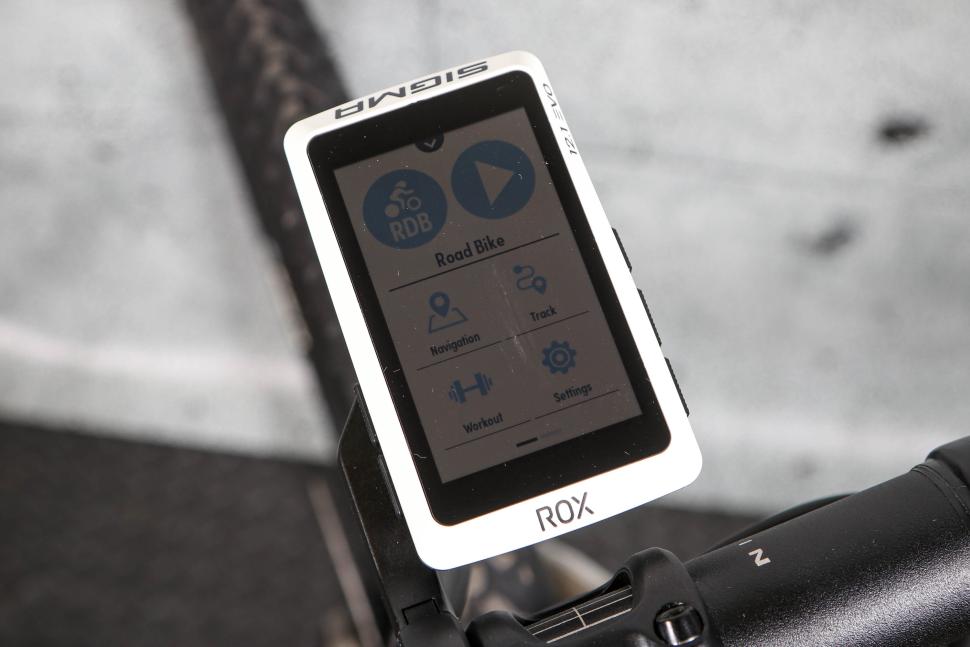

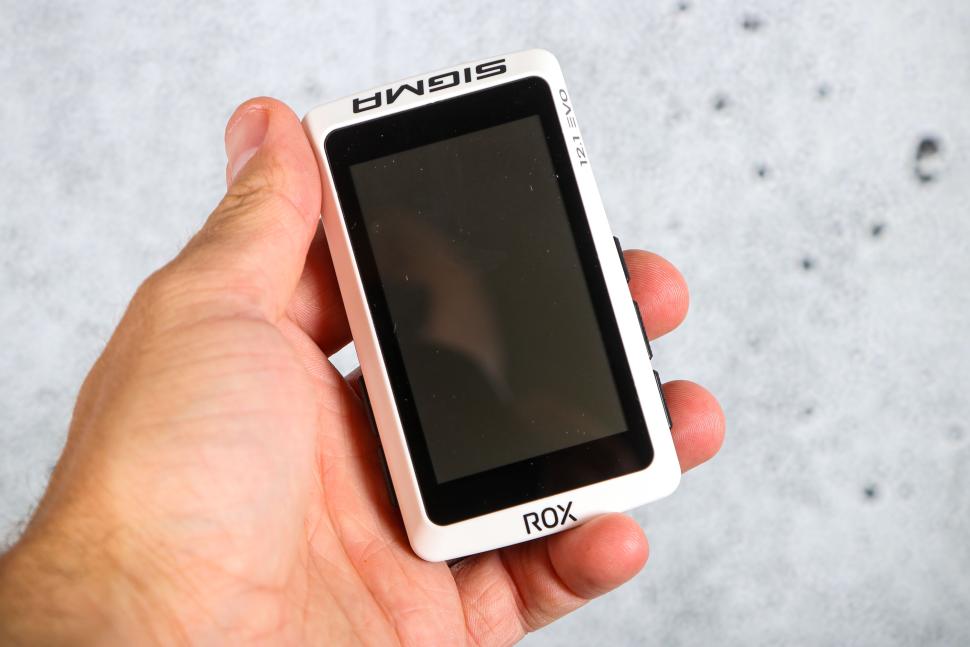
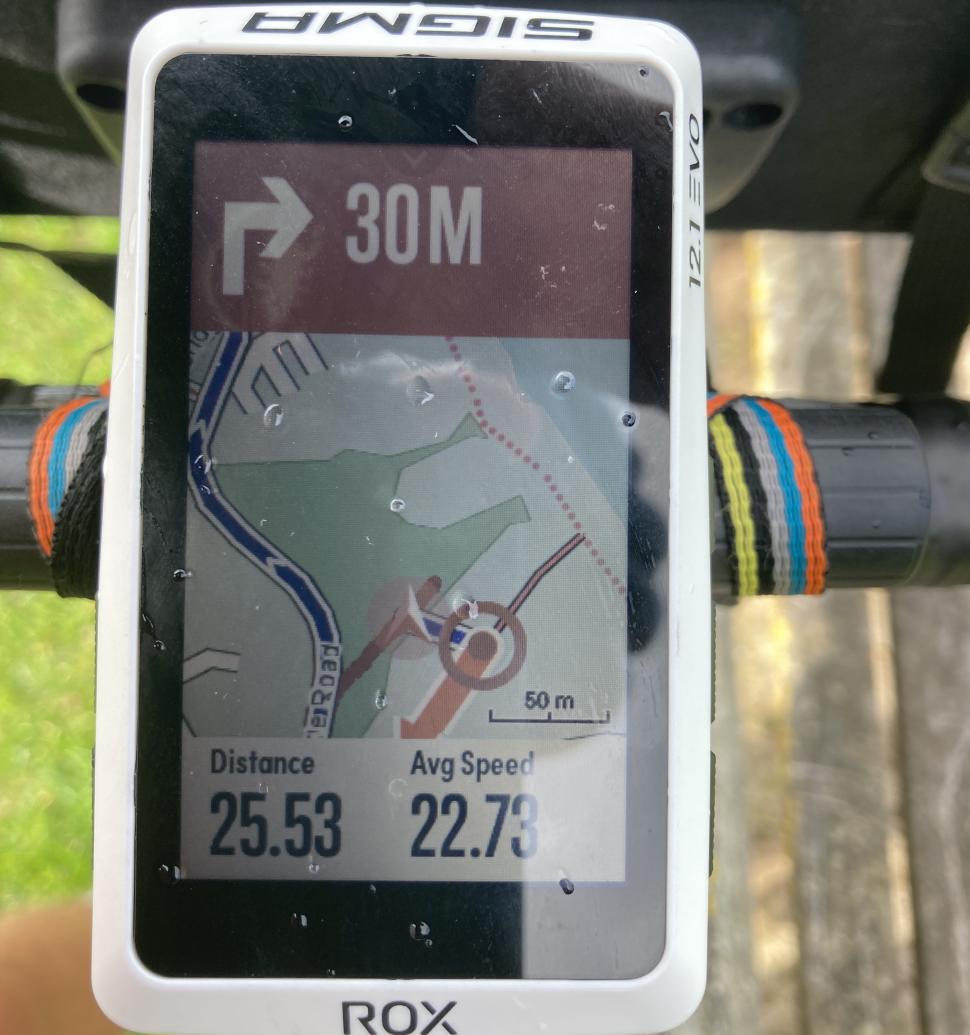
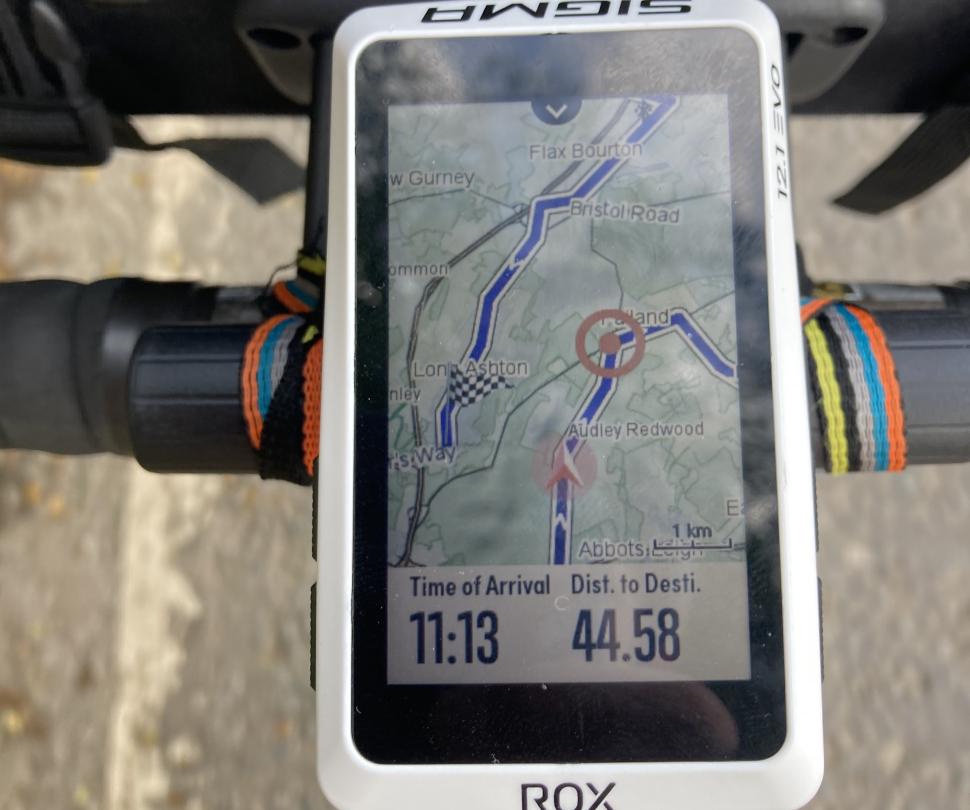






























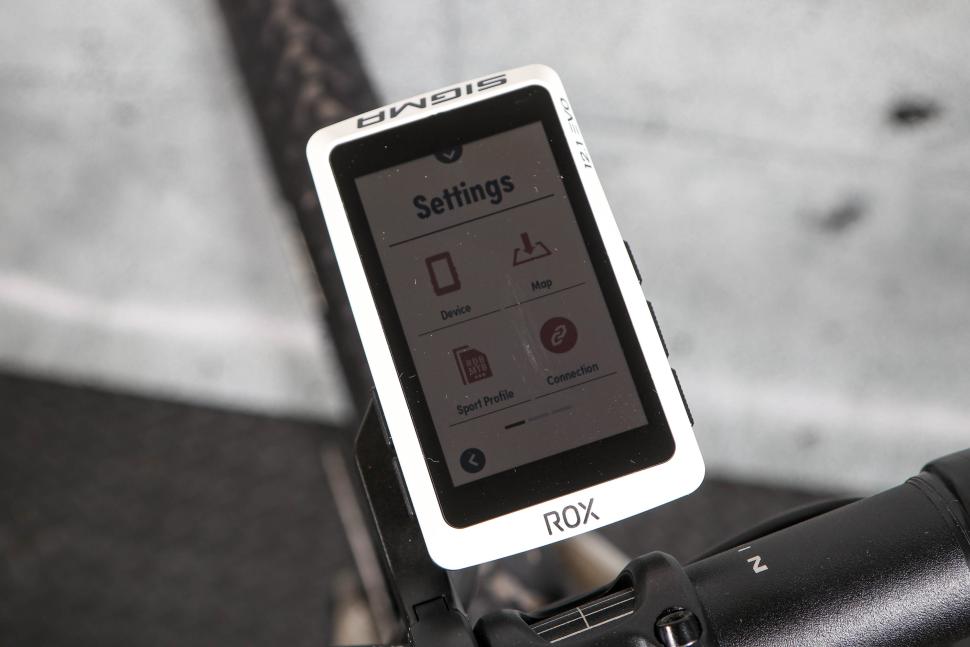
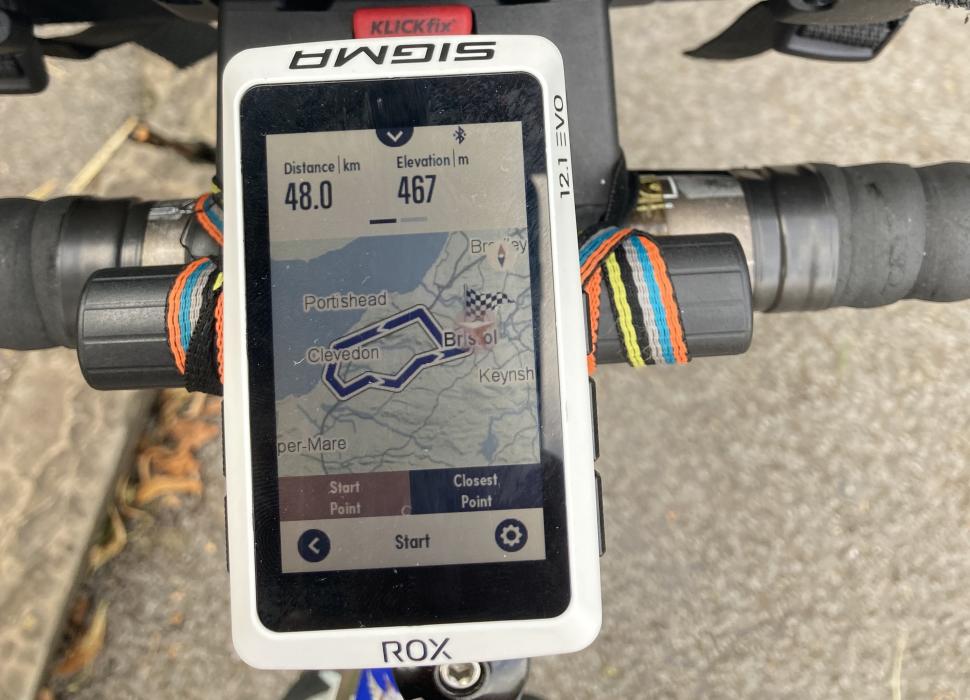
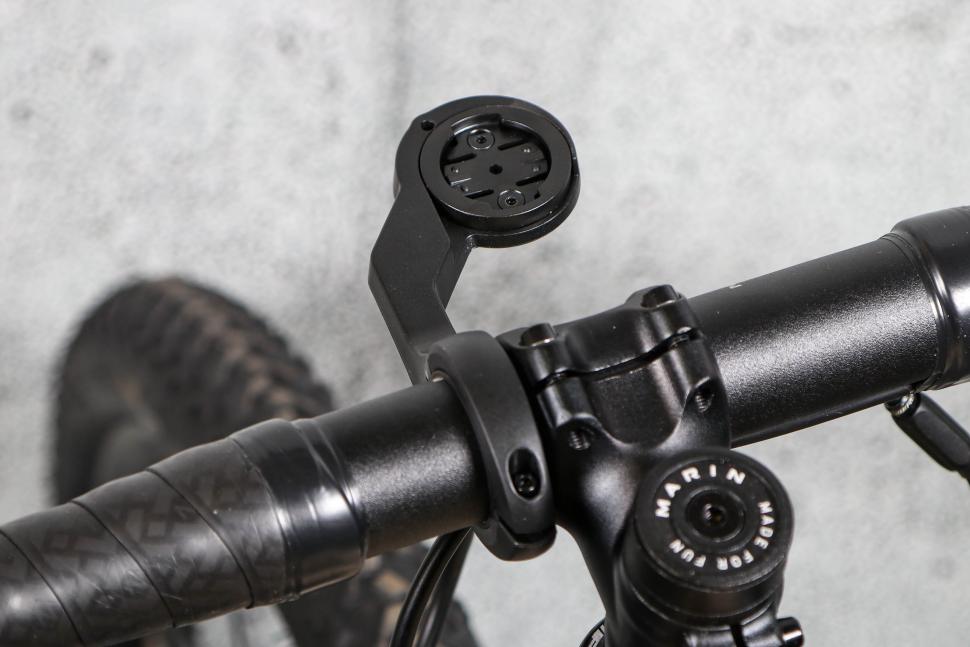

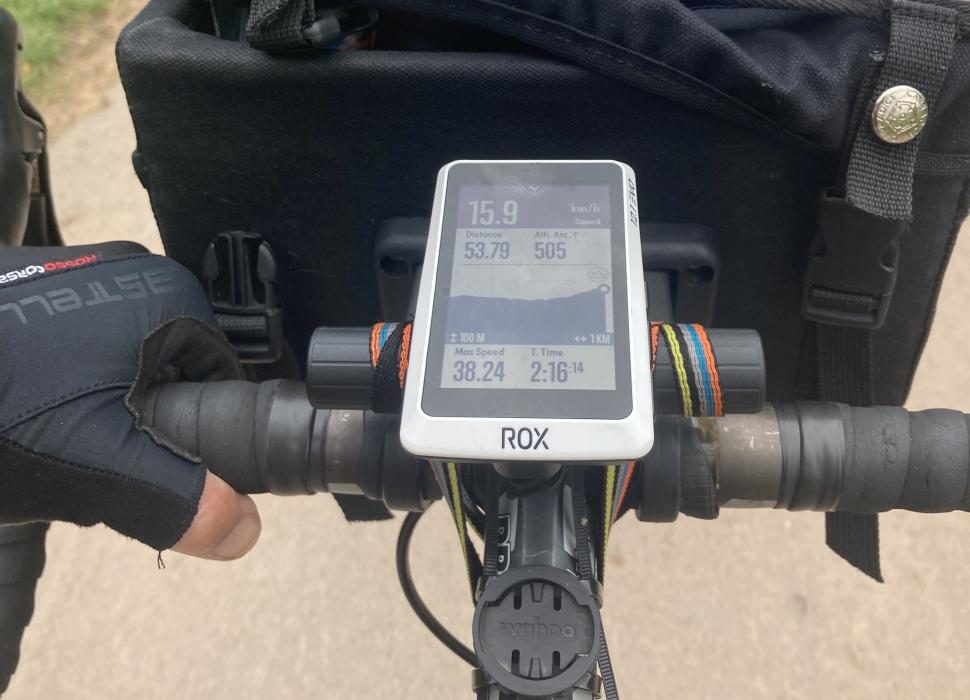
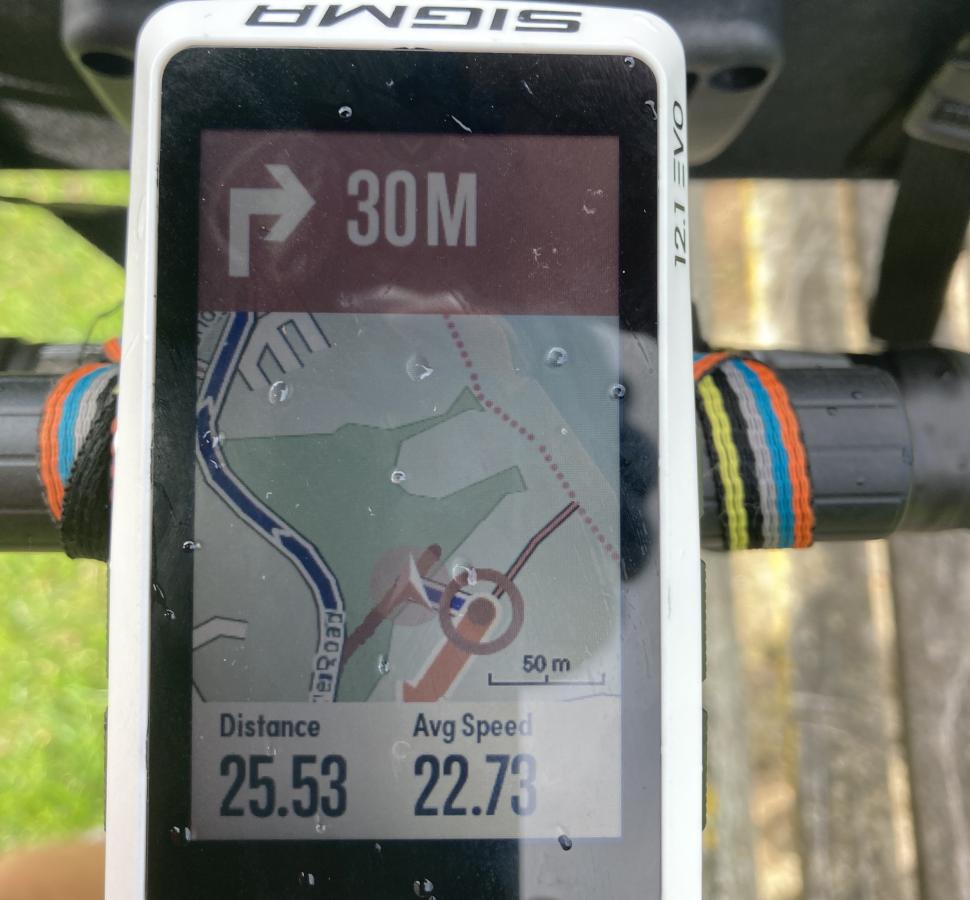

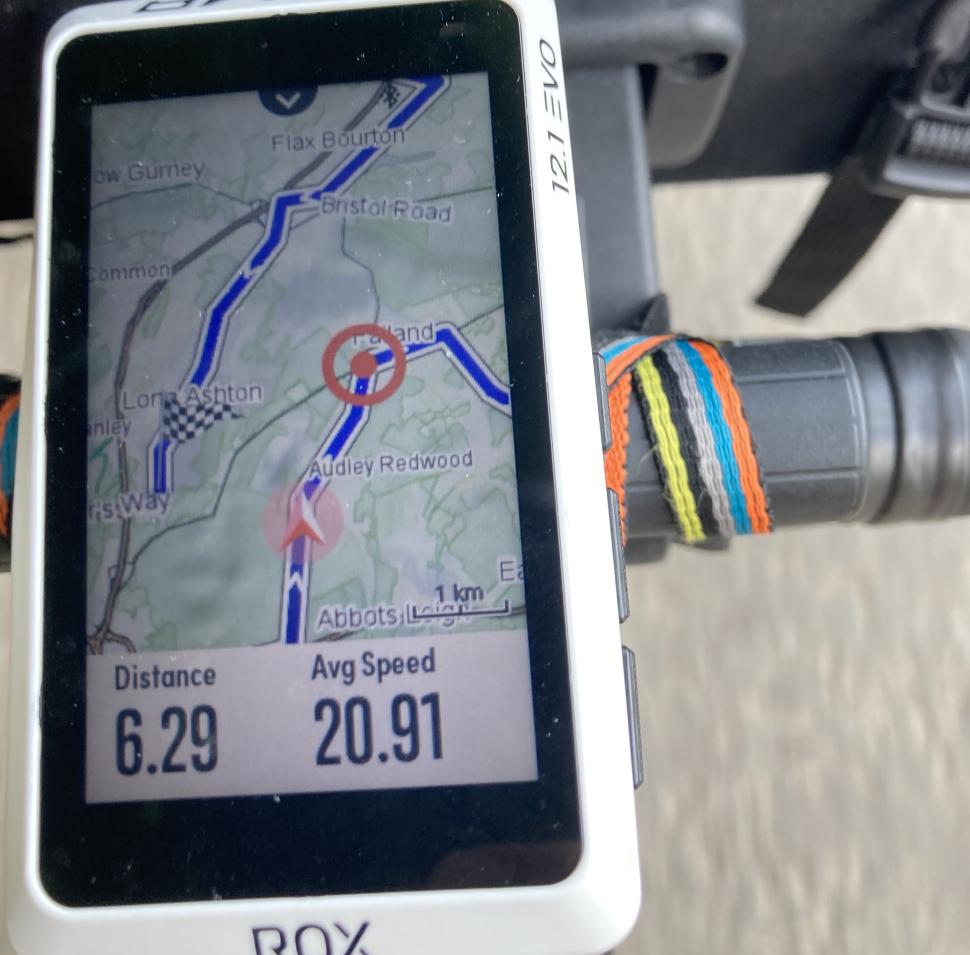
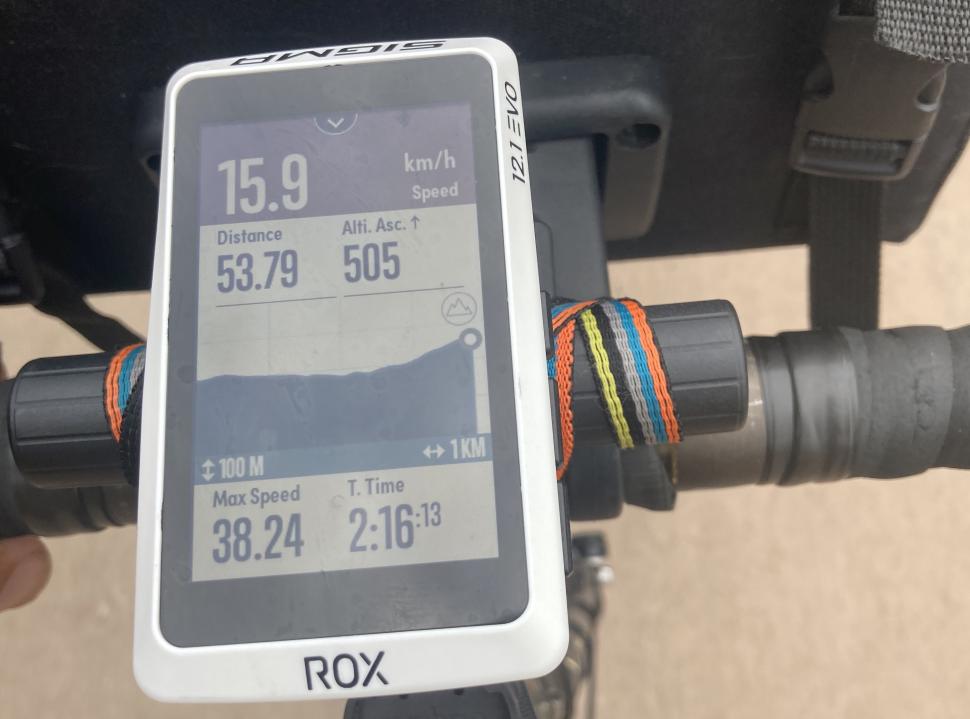

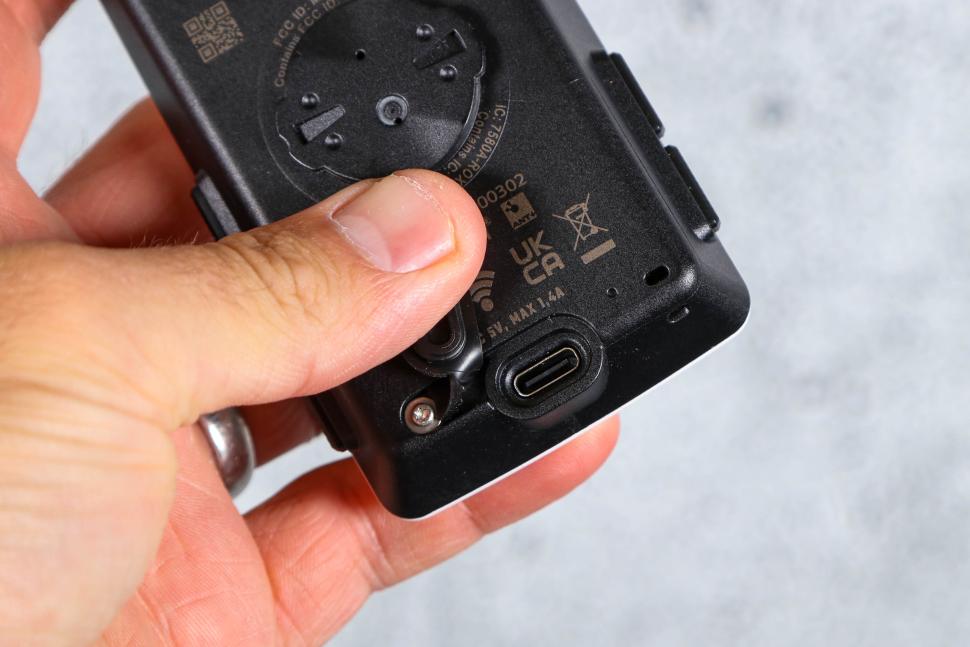
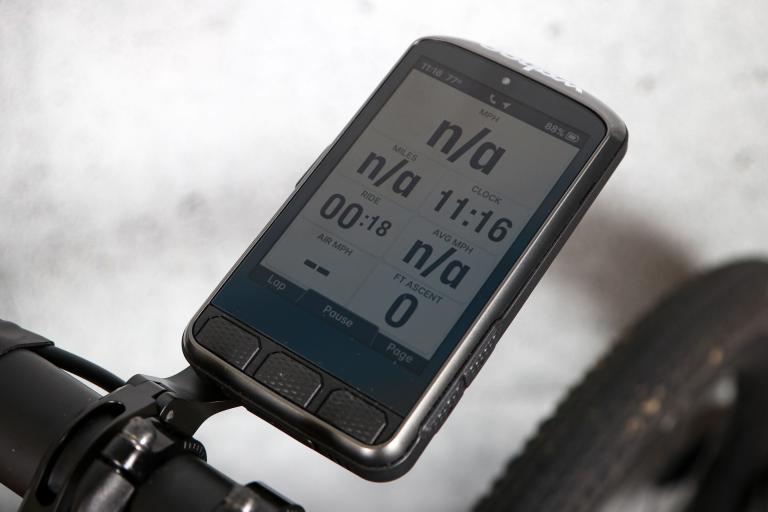
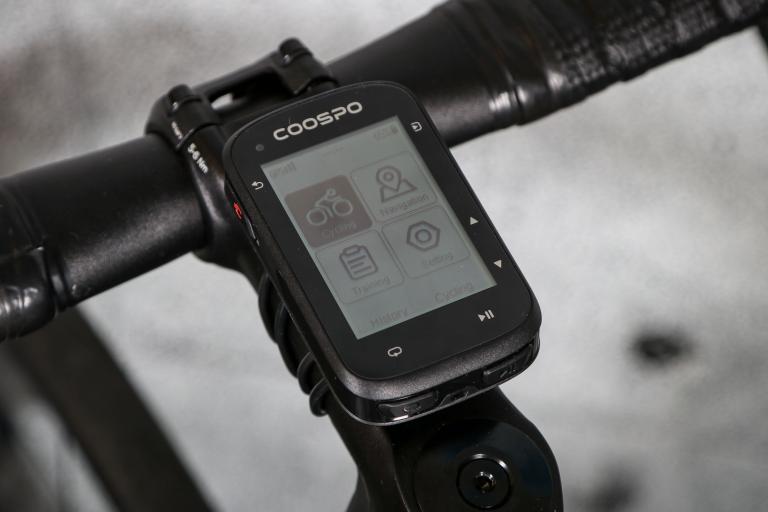
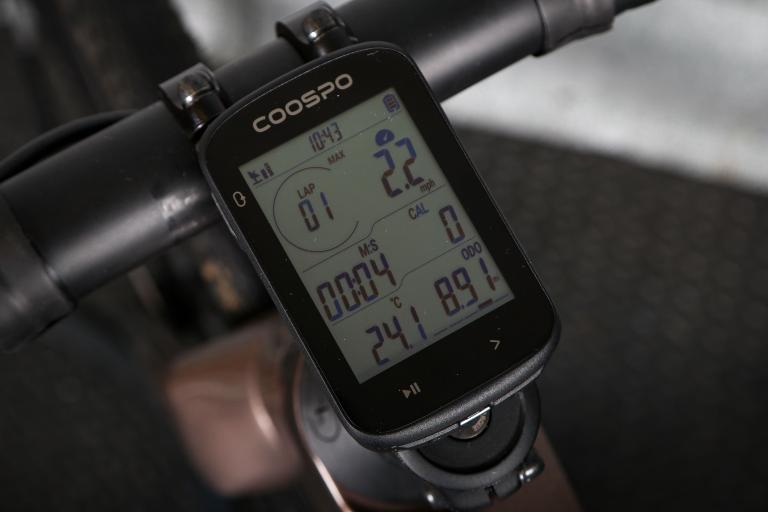
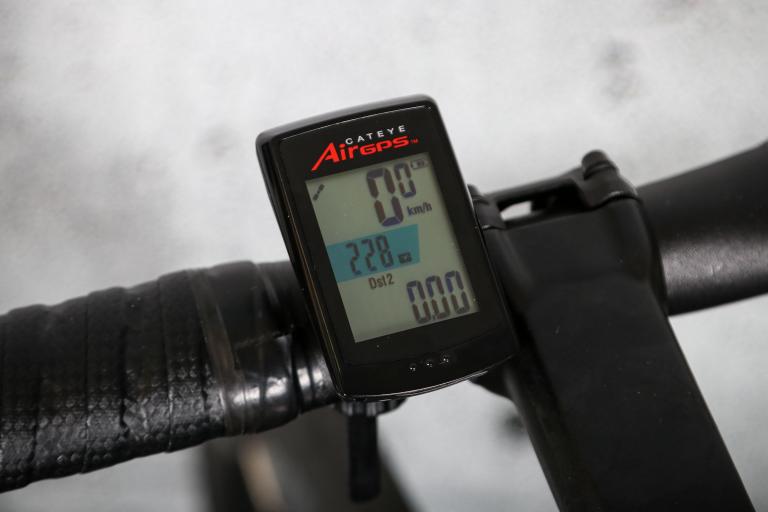
Did you just cancel your brain? just... c'mon... no.
I know they're the dregs but that really would be scraping the bottom of the barrel.
No. New world economics notwithstanding, prices of tech stuff have mostly come down a lot over the decades, sometimes in actual numbers of £s and ...
Sign it better!...
+1 for the physio. I'd knee problems a few years back - except the problem wasn't really my knees, it was muscles above and below. I doubt I'd have...
It's still 'better' than the 6 points and small fine the guy that broke my back [and ulna, and knee, and 11 ribs] got.
Have a look here - https://road.cc/content/forum/bike-respray-312357
In what way does he do that? I am sure you won't mind providing information to support your comment. Thanks.
Just another SUV driver in the Bible there. His conveyance was like a whale - but an earlier traveller had something as roomy as an ark!...
Kendo (Japanese: 剣道, Hepburn: Kendō, lit. 'sword way' or 'sword path' or 'way of the sword') is a modern Japanese martial art, descended from...